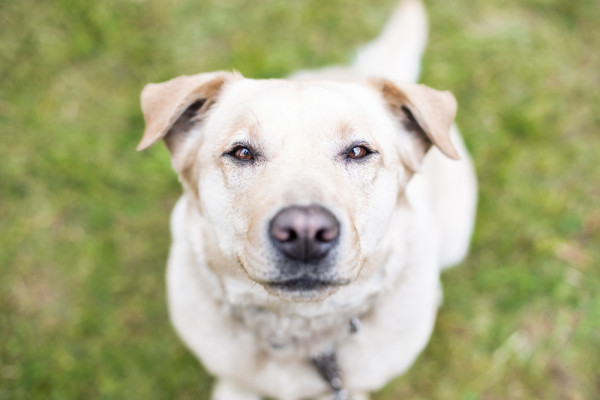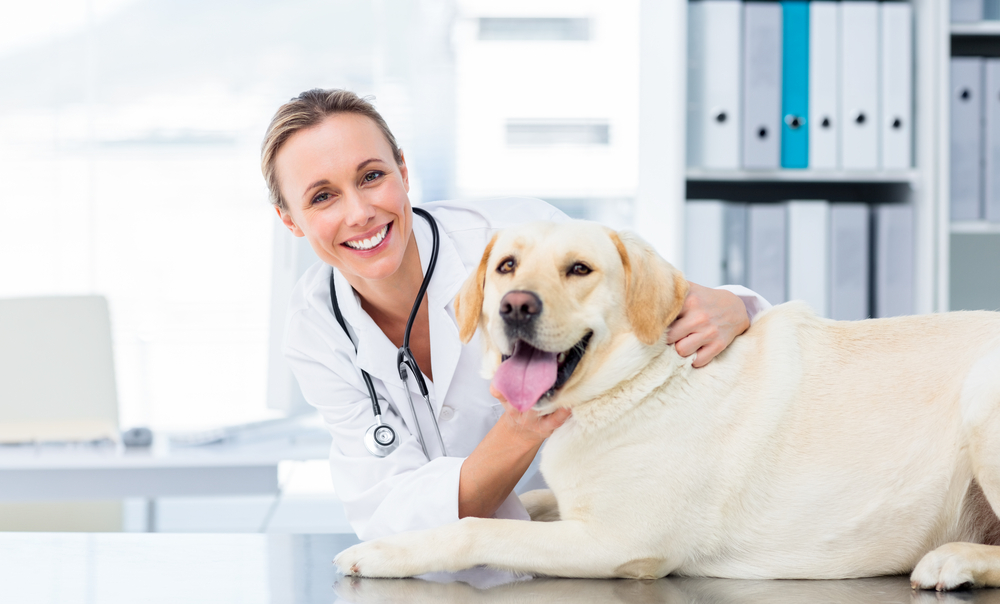Is your dog lazy? Has he lost his pep, or maybe he never had any? Does he have hotspots, shed excessively, or lick or chew obsessively? What if it’s not really a case of nerves or allergies? What if all these things are a sign of a nutritional deficiency in your dog?
Nutritional deficiencies can occur in any dog- any breed, any size.
Just like with people, even though they are eating adequate portion sizes of what we think a quality dog foods, there can still be gaps in essential nutrients your dog’s body needs to be healthy. We most often notice these nutritional deficiencies in the form of physical symptoms- like hotspots, itching, or hair loss. But nutritional deficiencies can also lead to listlessness, lack of energy, and even behavior problems because you dog just doesn’t feel well. And since he can’t tell you when there’s a problem or when he’s craving a particular food or nutrient, we have to do a little detective work.
Signs of Nutritional Deficiencies in Dogs
Signs of many nutritional deficiencies are easy to spot:
- lackluster coat
- hotspots
- crusty skin
- sores that keep reappearing or that just won’t heal
- bad doggie odors
But other symptoms can point to a nutritional deficiency as well, and are harder to spot:
- changes in mood
- changes in sleeping patterns
- irritability
- doggie depression/ losing interest in play or socialization
- excessive attachment to comfort items, like constant petting, favorite toys, or blankets
- difficulty regulating body temperature (being too hot or too cold often)
- tires easily
- wanting to eat non-food items, like rocks, poop, or socks
- pooping too much or suffering from constipation
- allergies, food intolerances, and other signs of a lackluster immune system
- hyperactivity
You can be feeding your dog every day, but he can still be starving to death slowly.
Nutrients Your Dog Needs
There are many essential nutrients your dog needs to stay healthy. The list is long, but here are a few examples to give you an idea of how nutritional imbalances and malnutrition can affect your dog.
Iron: Iron is necessary in your dog’s diet. It is used by your dog’s body to help transport oxygen through the bloodstream. Without enough iron, your dog can feel tired, winded, and overly exerted even with simple exercise. Too little iron can also cause a dog to eat some strange items, like rocks from the driveway.
Sodium: While everyone needs a little sodium- it helps you maintain a water balance in your body instead of peeing until you are dehydrated- getting too much can be bad thing, as well. And just like fast food for people, you can find excess sodium in your dog’s version of fast foods as well (like cheap food and unhealthy treats. Too much sodium can cause your dog to lose interest in his food (especially healthy foods), drink excessive amounts of water, and urinate too often.
Niacin: Sometimes called Vitamin B3, niacin is also a commonly imbalanced nutrient in dogs. Improper dosages can be used in some foods as a “nutritive additive” to help increase nutritive value, but getting too much niacin can result in liver damage, allowing toxins to build up in your dog’s body and affecting his ability to digest food.
Are you getting a picture of how serious proper nutrition is for your fur baby?
That’s why most dogs, like most people, need some sort of nutritional supplementation.
And good nutrition often leads to a longer life for your pup. Have you heard about Bluie the Australian Cattle Dog? He holds the world record for living an amazing 29 years! His human caregiver credited Bluie’s longevity to the natural, raw food diet of prey animals Bluie ate in the Australian outback.
The Power of Nutrition
High-quality nutrition may very well be the key to longevity for your dog. But how do you make sure he’s getting everything he needs, but not too much of any one nutrient?
This is where it becomes crucial to choose the right supplements. Just like every competitive pet product on the market, not all dog nutritional supplements are created equal.
Step 1: Rid his mouth of damaging plaque and fight gum disease.
Ridding your dog’s mouth of harmful gum disease not only gives him fresher breath and healthier teeth, it also prevents other complications that arise from periodontal disease, like cardiovascular disease and organ damage.
You can also go beyond dental supplements and try a gel, spray, or wipe for even better oral health!
Step 2: Improve flexibility and mobility by nourishing his joints.
All breeds and sizes of dogs can benefit from joint health support. The ability to move without pain and stiffness is vital to your dog’s good health. Nutrients that nourish, protect, and repair joints can keep your dog active and happy.
Step 3: Give him the nutrients his body craves with an all-in-one multivitamin.
Step 4: Harness the power of OMEGA Fatty Acids.
OMEGA 3 fatty acid supplementation helps treat many common health problems in dogs. Itchy skin, hotspots, cardiovascular disorders, cognitive and neurological function issues, inflammation, kidney disease, and osteoarthritis are just a few.
This easy-to-use system provides balanced optimal health and wellness for your dog so he can live an active, happy, long life- the way nature intended.




 Toledo, United States.
Toledo, United States.